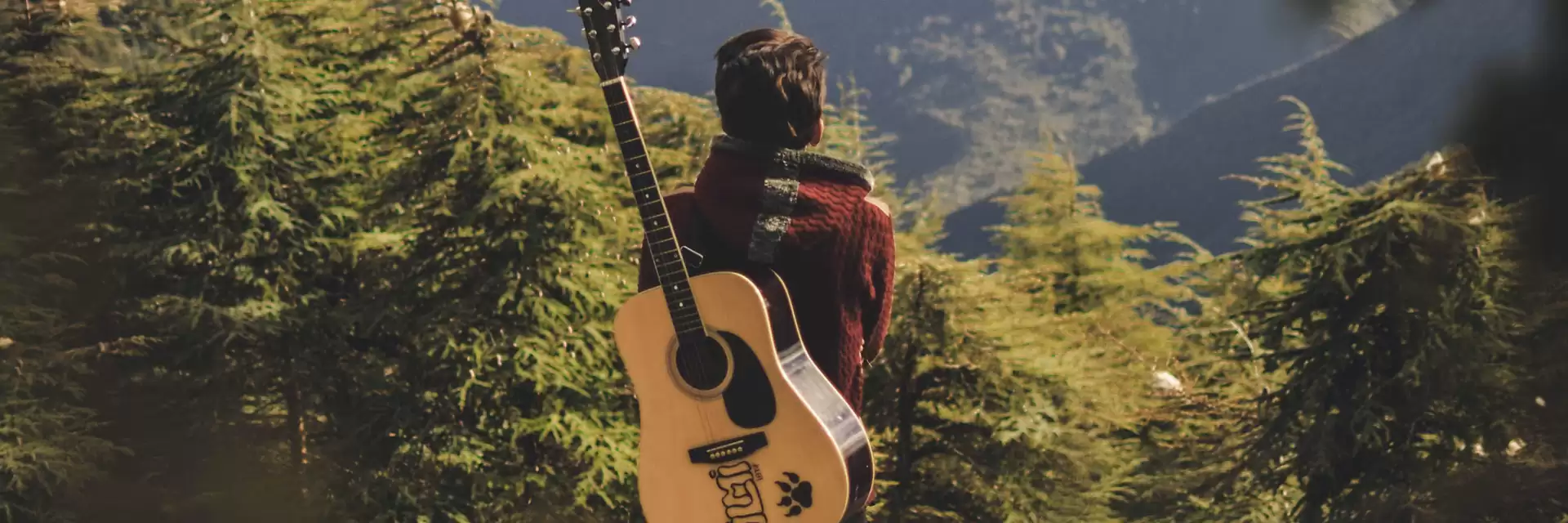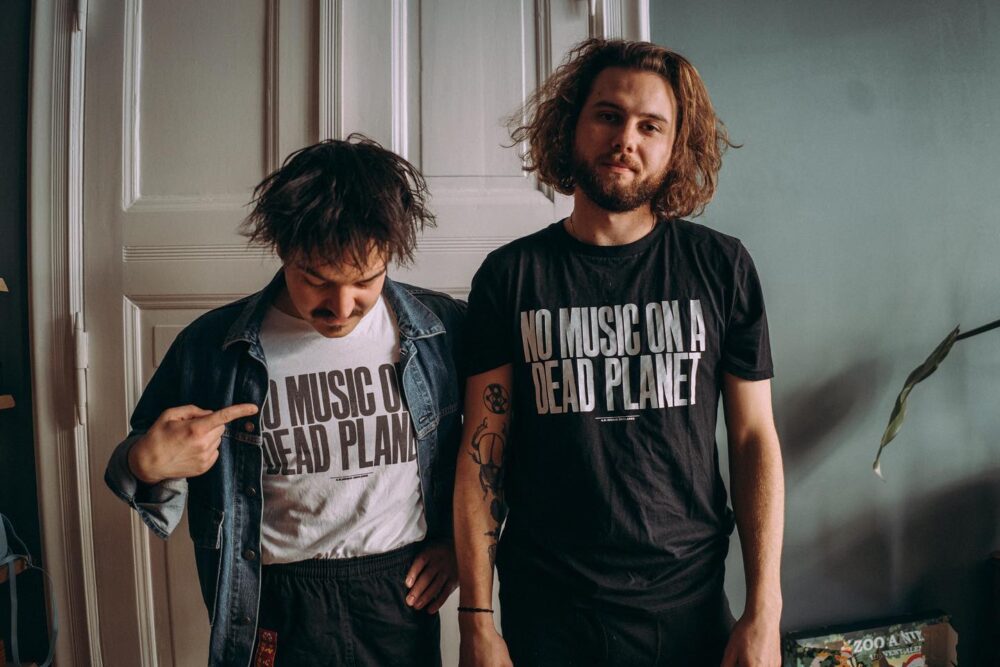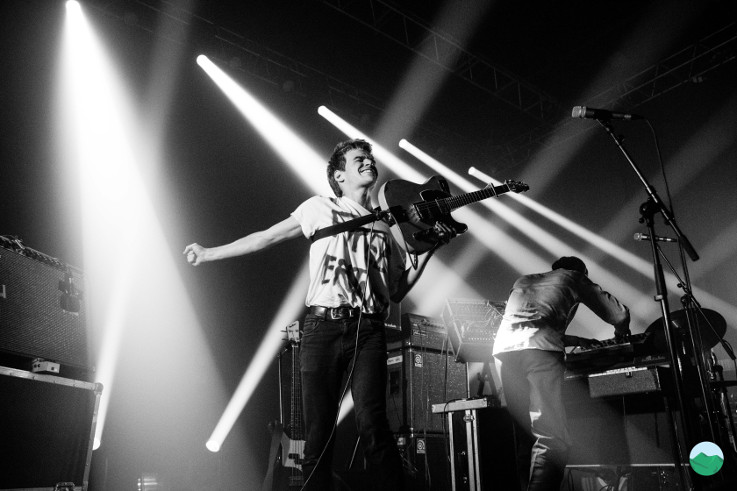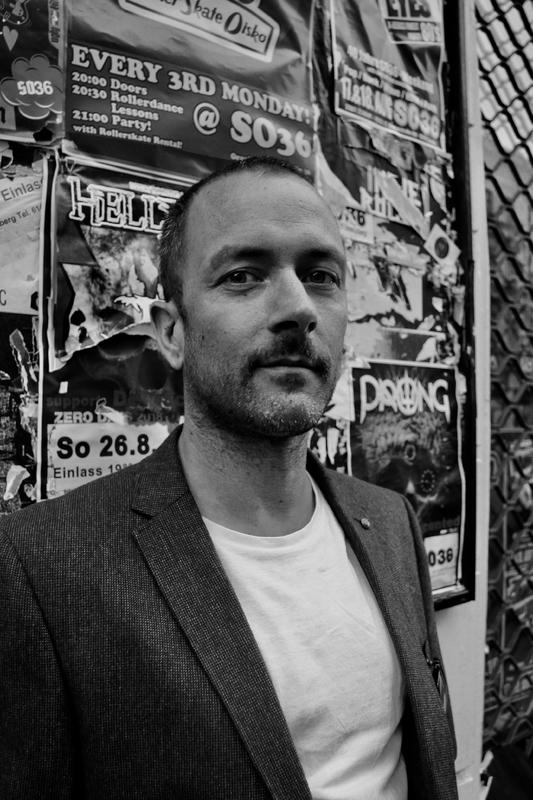
In early 2021, Austrian musician Manu Delago embarked on one of the most ambitious tours of his career. Wanting to minimise his carbon footprint, the artist and his crew packed their instruments and live equipment onto a series of trailers, biking to all the concerts on their tour. Going green is an ambition many artists share, but it’s one that doesn’t require everyone to start pedalling to their gigs. Today, we look at how artists are finding different ways to sustainably tour in 2022, and beyond.

© Manu Delago ReCycling Tour 2021
The media has been awash with mainstream artists touting their new green approach to touring. Billie Eilish, Radiohead, Massive Attack, and many others, have all come out with different approaches to limiting their carbon footprint whilst touring the world. In 2019, Coldplay even ceased touring due to concerns about their impact on the environment, before then designing a more ecological touring setup.
Even just taking one short-haul flight emits as much CO2 as some people emit in the entire year. When calculating the environmental impact of touring, you not only have to consider the band and crew, but also travelling fans as well, who add to the carbon footprint of shows and festivals.
How do bands continue to tour, and play concerts across the continent—and the globe— without negatively impacting the climate? The solutions are far from simple, with many artists taking a myriad of approaches to resolve the issue.

© Guy Smallman
The Green Rider
Established by the United Independent Music Agencies (UIMA), The Green Rider is a resource kit and list of requirements for promoters and bookers to adhere by. Alongside greener hospitality and accommodation requirements, there are also travel specifications that aim to minimise the use of short-haul flights.
According to UIMA, more than 1000 acts represented by the agency play over 15,000 shows annually, taking 18,400 flights, of which 7,500 are less than 750 km in distance and have the potential to be replaced by greener alternatives, like the train. By implementing the Green Rider, artists can reduce their CO2-emissions by 80%.
UIMA is not the only initiative to implement such a requirement. The Green Touring Network, a German non-commercial cooperation, also published a Green Touring Guide, to assist and help direct artists in their goals of becoming climate neutral. The guide has six steps towards sustainability, including travel, performance, catering, sleeping, merch, and communications.
One band that uses a Green Rider is the German pop band, Milky Chance. Wanting to be proactive in their efforts to be sustainable and green, the band hired a Sustainability Manager in 2019, Mariko-Ann Zimmer. Together, they want to use their platform as musicians “to take a proactive stand towards the environmental emergency.” The band and crew travel as much as possible by bus, avoiding flights and hotels. They meet NGOs whilst on the road and draw awareness towards the climate crisis as much as possible. They’re also a part of the Music Declares Emergency initiative, a global movement of artists pushing for climate awareness. The campaign is called ‘No Music on a Dead Planet’, and has also produced an info pack that includes a 10-step guide for artists to green-up their tours. The document also features advice from ecolibrium, a live events collective promoting climate awareness in the festival scene, on how best to approach touring. This five-point guide includes tips such as measuring travel carbon footprint, making a sustainable travel plan, and communicating environmental goals with the audience.

© Anthony Molina
Going Green on the Road
Milky Chance aren’t the only German act taking climate change seriously. It’s become a big talking point within the live industry. Two of Germany’s biggest rock bands, Die Ärzte, and Die Toten Hosen have been working alongside the non-profit Atmosfair, which promotes and contributes to CO2 mitigation projects. On their most recent tours Die Ärzte and Die Toten Hosen added a small additional fee to their concert tickets, which was donated to Atmosfair, in order to offset the CO2 emissions. All this comes after the two bands played new, experimental “eco-friendly” concerts in Berlin, exploring new “climate and resource-positive products and processes” that they could implement on upcoming shows.
Of course, not all acts have the resources to carry out such lofty projects. This is where the Goethe-Institut has stepped in. The non-profit German cultural association set up an arts funding project called Grün Unterwegs to help professional musicians tour sustainably, and promote low-carbon music tours. Amongst the many artists who received funding is German sound artist Felix Claßen, who took his solar-powered quadraphonic sound-installation on the road, travelling solely by train and boat. There’s also jazz musician Jonas Engel, who was able to subsidise greener transport methods on his European tour, and Luxemburgish, Berlin-based musician Tub Biever, who plays in the indie band, Tuys.
“We discovered Grün Unterwegs through another pan-European program we were in, called Initiative Pop,” Biever replies, when asked how he first heard about the funding.
Tuys used the funding when booking the band’s first headline tour in the UK. “The money went into the tour as a whole, and was an incentive to make green decisions,” he explains. “That allowed us to opt for means of transport that were greenest, yet were more expensive; taking the ferry, instead of driving, for instance.”
Biking for Change
Sometimes making a big difference requires taking small steps. To reduce ones carbon footprint on the road, you don’t need to ride a bike to your gigs, join a pan-European initiative, or invent new, green-powered sound systems. Sometimes, just by having a conversation with your bandmates, crew, and promoters, you can be the precursor to something bigger.

© Pierre Andrieu
“We take this aspect into consideration a lot, and we question ourselves a lot about it,” replied The Psychotic Monks, when asked about their approach to green touring. The French band came to the attention of Europavox when they played our festival in Clermont-Ferrand back in 2021, with special, ‘greener’ requests in their rider. “What we try to do is, for example, avoid flying unless there is no other solution. We try to avoid isolated gigs; reduce our demands on the rider so that there are no plastic products; avoid buying plastic water bottles, and also, but this is more personal, we are vegetarians and vegans so we ask for meatless food. Artists have a big responsibility, because if they commit themselves to these issues and get together around it, it can send a strong message.” The strong message ? There will be no music on a dead planet.
